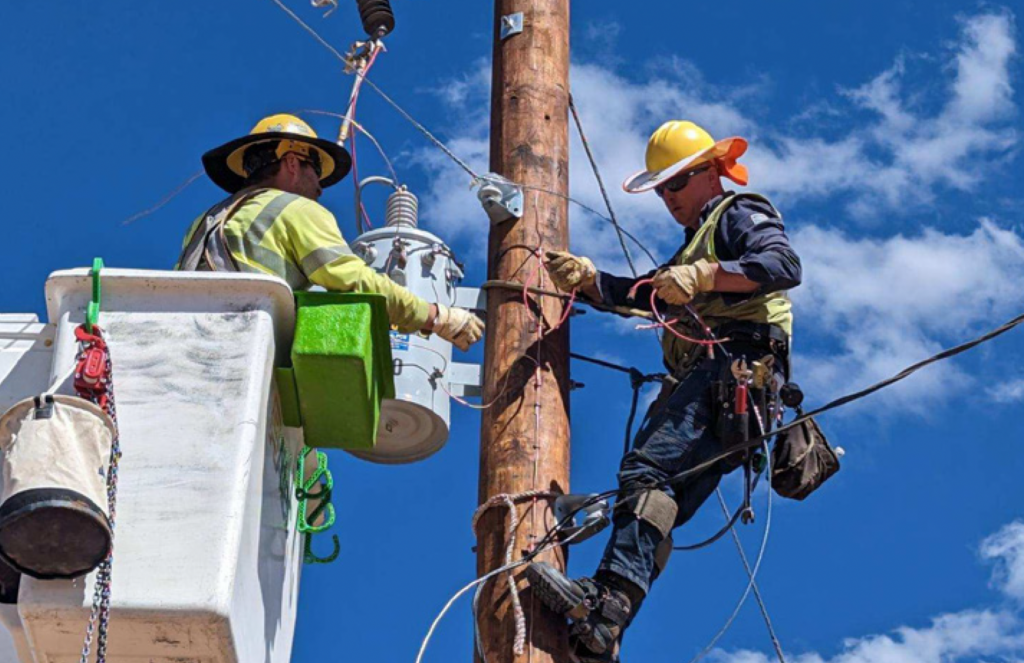NPU continues its support Light Up Navajo Initiative
NORWICH – Two Linemen from NPU spent two weeks in May helping to close the nation’s electricity gap by hooking up Indigenous households to the power grid in the Chinle District of the Navajo Nation.
Last year, two NPU Linemen spent two weeks in May in Arizona working to bring electricity to a number of homes for the first time.
The Navajo Tribal Utility Authority (NTUA) will welcome to the Navajo Nation public power utility companies from across the United States to participate in the Light Up Navajo IV, a mutual aid project that extends service to Navajo homes without electricity.

“NPU is very proud to be a part of this exciting project and to help close America’s electricity gap with other municipal power providers from across the country,” said Chris LaRose, General Manager of NPU. “We are proud to have Jeff and Tom share their abilities and expertise to help improve the lives of the members of the Navajo Nation who are living without electricity in their homes for far too long.”
NPU sent linemen with only their hand-tools and personal protective equipment. NTUA provided line trucks, tools, and material for the visiting linemen. NPU covered their normal pay and travel (flight, rental car, etc.) and NTUA covered their meals and lodging.
Of the 55,000 homes located on the 27,000-square-mile Navajo Nation (roughly the size of West Virginia), approximately 14,000 homes still do not have electricity. They represent 75 percent of all U.S. households that do not have power.
Electrifying just one household is an expensive – and time consuming – endeavor. Each household, on average, requires one transformer, more than a half-mile of wire, 6-10 poles, as well as insulators and arrestors to connect to the electric grid. NTUA estimates these costs to be more than $5,000 per home.
Solar power has proven to be ineffective in this area; the strong winds and sand from the desert create issues for solar panels with extreme weather conditions creating excessive wear and tear on equipment, and sand frequently covering panels.

